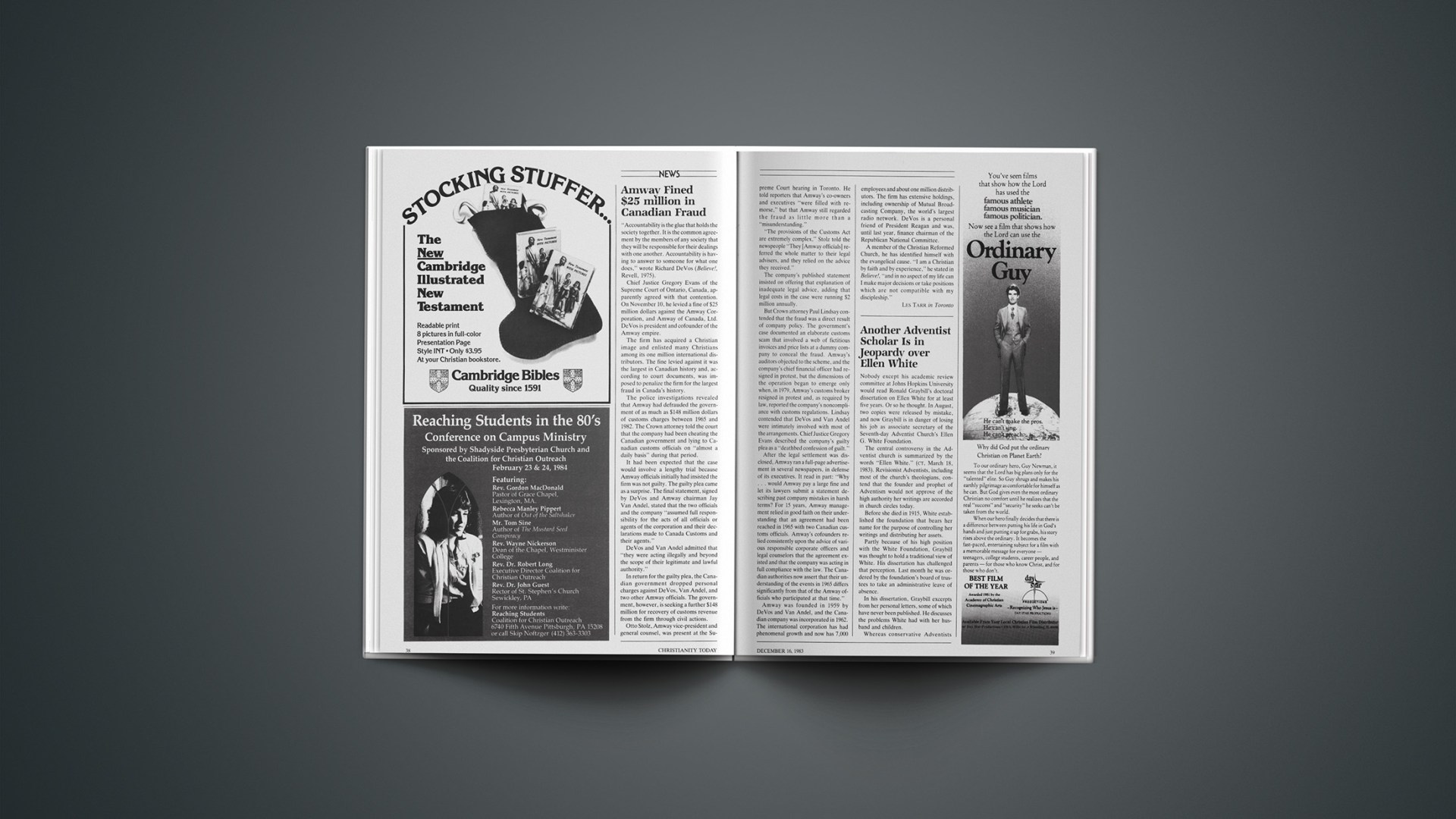Nobody except his academic review committee at Johns Hopkins University would read Ronald Graybill’s doctoral dissertation on Ellen White for at least five years. Or so he thought. In August, two copies were released by mistake, and now Graybill is in danger of losing his job as associate secretary of the Seventh-day Adventist Church’s Ellen G. White Foundation.
The central controversy in the Adventist church is summarized by the words “Ellen White.” (CT, March 18, 1983). Revisionist Adventists, including most of the church’s theologians, contend that the founder and prophet of Adventism would not approve of the high authority her writings are accorded in church circles today.
Before she died in 1915, White established the foundation that bears her name for the purpose of controlling her writings and distributing her assets.
Partly because of his high position with the White Foundation, Graybill was thought to hold a traditional view of White. His dissertation has challenged that perception. Last month he was ordered by the foundation’s board of trustees to take an administrative leave of absence.
In his dissertation, Graybill excerpts from her personal letters, some of which have never been published. He discusses the problems White had with her husband and children.
Whereas conservative Adventists have cited White’s meager formal education as evidence that her writings were inspired, Graybill shows that she may have been better educated and simply more intelligent than most have realized. In short, Graybill’s account has spawned the notion that he is the latest prominent Seventh-day Adventist to come out of the closet against Ellen White.
But Graybill says it’s not true. “People who think I’m repudiating what I’ve stood for, or breaking with the church or with the estate,” he says, “are wrong.”
Graybill explains that he was writing for a secular reviewing committee at Johns Hopkins. Thus, the dissertation was “written consciously from a nonsupernaturalistic perspective.”
Because he planned to elaborate on the doctrinal implications of his work, Graybill arranged with University Microfilms, a storehouse for dissertations from major universities, not to release the manuscript for five years. The organization has apologized to Graybill for violating the agreement.
“I’ve written an incomplete statement,” Graybill says. “But there’s nothing in it that’s inconsistent with the [Adventist] church’s understanding of Ellen White.” That’s what Graybill now has to prove to the foundation’s board of trustees.
Graybill’s ordination is not at stake, unlike the cases of other Adventists who have spoken against church doctrine. “Nobody feels that Ron is a disloyal Adventist,” says Kenneth Wood, chairman of the foundation’s board. “The issue is whether he can continue as a credible representative of the White estate.” Graybill damaged his credibility by violating foundation procedures for the release of White’s writings. Wood says he realizes Graybill did not intend for the dissertation to be made public until 1988, but the reality is that a large segment of the Adventist church has been exposed to what Graybill wrote.
Douglas Hackleman, editor of the magazine Adventist Currents, which holds the nontraditional view of White, calls the issue of Graybill’s procedural violations a “red herring.” “The real problem,” Hackleman says, “is that for most Adventists, the dissertation will have the effect of demythologizing Ellen White.” Hackleman asserts that a decision by the foundation not to retain Graybill would testify to its tendencies to hide the facts about White.










